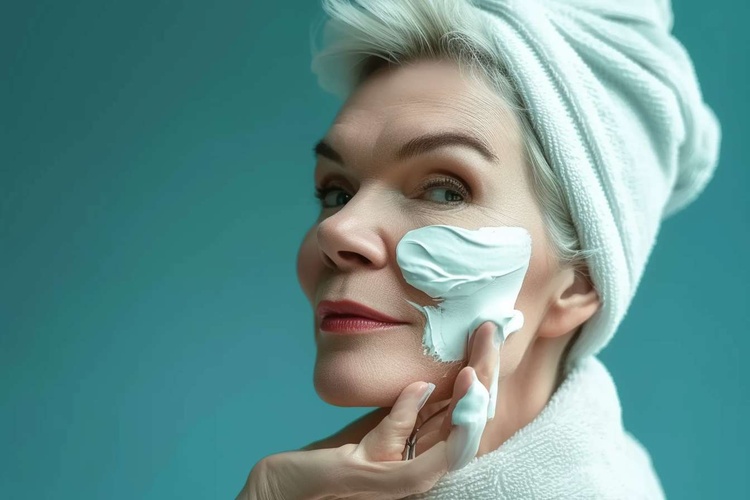5 Easy Ways to Stop Itching in Private Parts Instantly
Itching in private parts can be uncomfortable, embarrassing, and disruptive to daily life. Whether caused by irritation, infection, or allergic reactions, the urge to scratch can be overwhelming but potentially harmful. Fortunately, there are several effective ways to find immediate relief from this common problem. This article explores five easy methods to stop itching in private parts instantly, along with insights into causes and when medical attention might be necessary.

Why Do Private Parts Itch? Understanding Common Causes
Itching in the genital area affects both men and women and can stem from numerous causes. For women, vaginal yeast infections are among the most common triggers, characterized by itching, burning, and unusual discharge. Men frequently experience jock itch, a fungal infection that thrives in warm, moist environments. Other potential causes include pubic lice, scabies, contact dermatitis from soaps or detergents, sexually transmitted infections, poor hygiene, tight clothing, or even stress. Hormonal changes during pregnancy or menopause can also trigger vaginal itching in women. Understanding the underlying cause is crucial for effective treatment.
5 Easy Ways to Stop Itching in Private Parts Immediately
-
Cold Compress Treatment: Apply a clean, cold compress to the itchy area for immediate relief. The cold temperature reduces inflammation and numbs nerve endings, providing instant comfort. Wrap ice in a clean cloth (never apply ice directly to skin) and hold against the affected area for 5-10 minutes. Repeat as needed throughout the day.
-
Soothing Oatmeal Bath: Colloidal oatmeal has anti-inflammatory properties that calm irritated skin. Add one cup of finely ground oatmeal to lukewarm bathwater and soak for 15-20 minutes. Ensure the water isn’t hot, as high temperatures can worsen itching. Pat the area dry gently after bathing, avoiding vigorous rubbing.
-
Apple Cider Vinegar Solution: Mix one part apple cider vinegar with three parts water and apply using a clean cotton ball. This solution helps restore the skin’s natural pH balance and has antimicrobial properties that combat yeast and bacteria. For sensitive skin, dilute further and discontinue if irritation increases.
-
Baking Soda Paste: Create a paste by mixing baking soda with a small amount of water until it reaches a thick consistency. Apply to the affected area for 5-10 minutes before rinsing thoroughly with cool water. Baking soda neutralizes acids on the skin surface and provides anti-inflammatory benefits.
-
Plain Yogurt Application: For yeast-related itching, plain, unsweetened yogurt containing live cultures can help. Apply a thin layer of refrigerated plain yogurt to the affected area and leave for 20 minutes before gently washing away. The probiotics in yogurt help combat yeast overgrowth that often causes itching.
Natural Remedies to Stop Itching in Private Parts
Beyond the immediate relief methods, several natural remedies can provide sustained comfort. Coconut oil serves as an excellent moisturizer with antifungal properties—apply a small amount after showering. Tea tree oil, diluted with a carrier oil (1 drop per tablespoon of carrier oil), offers antimicrobial benefits for fungal infections. Aloe vera gel provides cooling relief and promotes healing of irritated skin. Witch hazel acts as a natural astringent that reduces inflammation and soothes irritation. Additionally, wearing loose-fitting cotton underwear allows proper air circulation and reduces moisture that can exacerbate itching.
When to Visit a Doctor for Genital Itching
While home remedies can provide temporary relief, certain symptoms warrant medical attention. Consult a healthcare provider if itching persists beyond one week despite home treatment, if you notice unusual discharge, rash, sores, or bleeding in the genital area, or if itching is accompanied by pain during urination or intercourse. Additionally, recurrent episodes of genital itching, symptoms that worsen rapidly, or itching that occurs alongside fever or swollen lymph nodes requires prompt medical evaluation. Those with diabetes or compromised immune systems should seek medical advice earlier, as they face higher risks of complications from infections.
Prevention Tips for Maintaining Genital Health
Preventing genital itching is often easier than treating it. Practice proper hygiene by washing the genital area daily with mild, unscented soap and warm water. Always wipe from front to back after using the toilet to prevent bacterial transfer. Choose breathable, cotton underwear and avoid tight-fitting pants or undergarments that trap moisture and heat. Change out of wet swimsuits or workout clothes promptly. Avoid potential irritants like scented soaps, bubble baths, feminine sprays, and perfumed toilet paper. Maintain a balanced diet low in sugar to discourage yeast growth and stay hydrated to support overall skin health. For women, avoiding douching helps maintain natural vaginal flora.
Common Products for Treating Genital Itching
Several over-the-counter products can provide relief from genital itching, though effectiveness varies depending on the underlying cause.
| Product Type | Examples | Best For | Approximate Cost |
|---|---|---|---|
| Anti-fungal creams | Clotrimazole (Lotrimin), Miconazole (Monistat) | Yeast infections, jock itch | $8-15 |
| Soothing ointments | Hydrocortisone creams (0.5-1%) | Inflammation, allergic reactions | $5-10 |
| Antihistamine creams | Benadryl cream, Caladryl | Contact dermatitis, allergic reactions | $6-12 |
| Medicated washes | Anti-itch cleansers with colloidal oatmeal | General relief, maintenance | $8-20 |
| Oral antihistamines | Benadryl, Zyrtec, Allegra | Widespread itching from allergic reactions | $10-25 |
Prices, rates, or cost estimates mentioned in this article are based on the latest available information but may change over time. Independent research is advised before making financial decisions.
Genital itching is a common but manageable condition that affects people of all ages. The five instant relief methods—cold compresses, oatmeal baths, apple cider vinegar, baking soda paste, and yogurt application—can provide immediate comfort while addressing the underlying causes. For persistent or severe symptoms, consult a healthcare professional to rule out serious conditions and receive appropriate treatment. With proper hygiene practices and preventive measures, most cases of genital itching can be effectively managed or prevented altogether.
This article is for informational purposes only and should not be considered medical advice. Please consult a qualified healthcare professional for personalized guidance and treatment.




